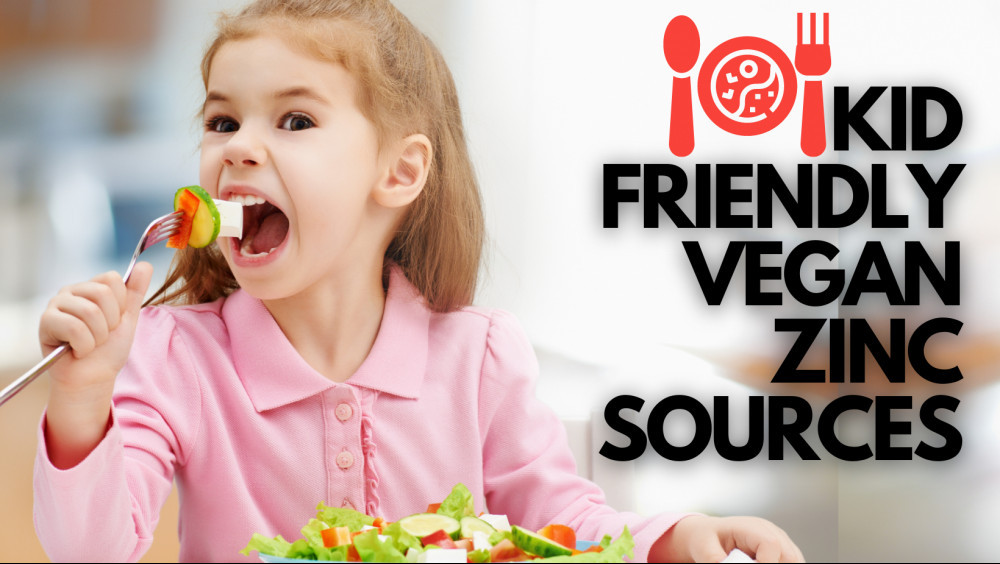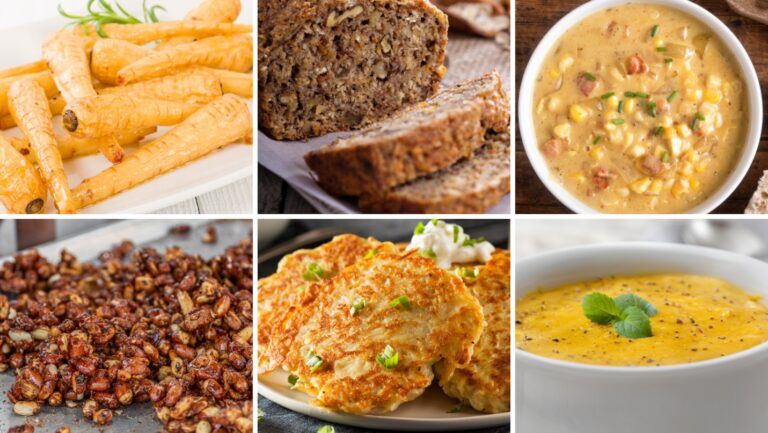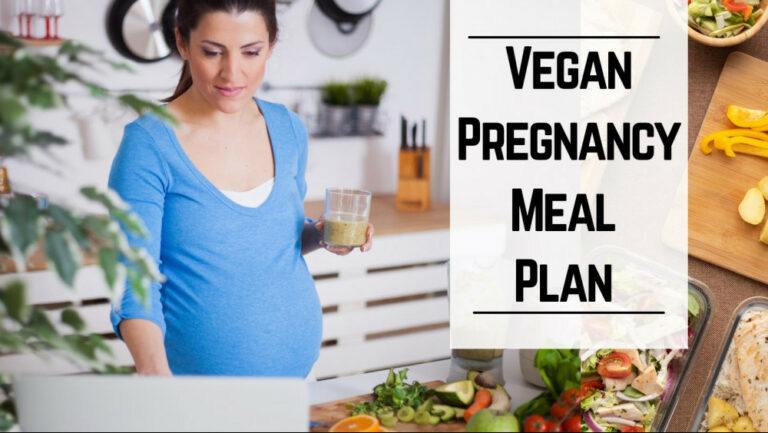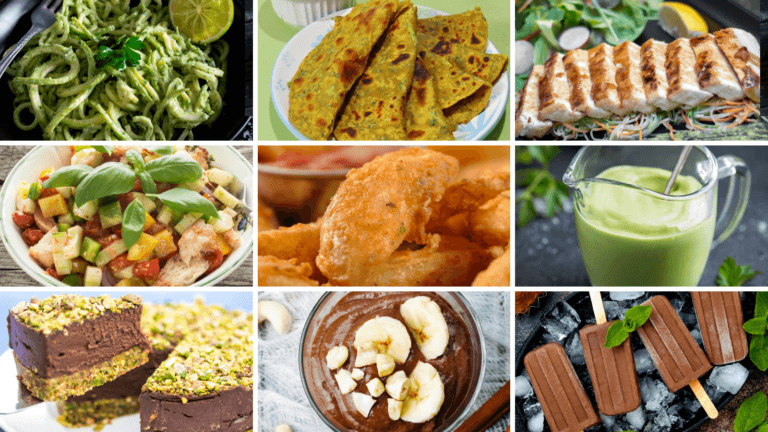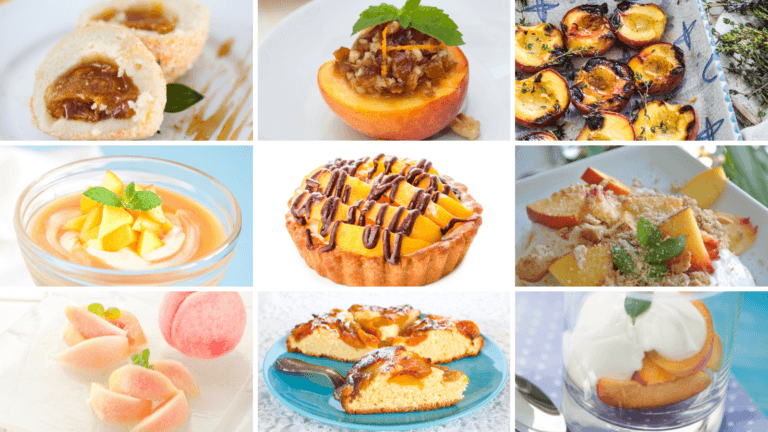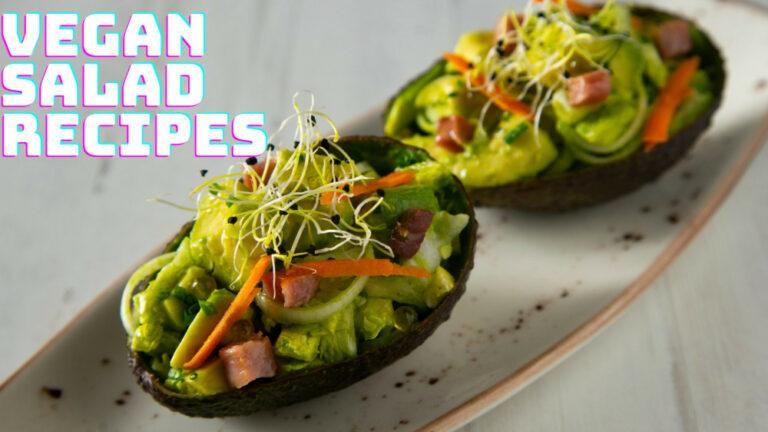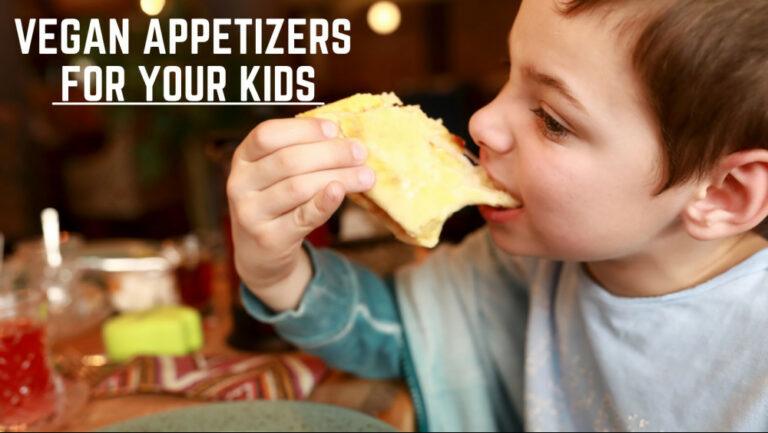Best Kid-Friendly Vegan Zinc Sources
Best Kid-Friendly Vegan Zinc Sources
Breast milk contains a small quantity of zinc, in case you didn't know. It aids in the development of immunity in the baby.
Zinc is necessary for your child's overall growth since it requires the body to make proteins and DNA, digest nutrients in food, and re-grow and repair body tissues.
Sheela Krishnaswamy, a famous Bangalore-based food, nutrition, and wellness specialist, says, “Zinc is necessary for maintaining immunity and warding off illnesses.
It also plays a role in wound healing and is a component of numerous enzymes.” Here, I will share kid-friendly vegan zinc sources, so stay connected with me.
What Is Zinc?
Zinc is required for various metabolic and enzymatic processes in the human body. Zinc is required to create DNA, proteins, wound healing, and cell division.
Zinc is needed to help the body fight off potentially hazardous viruses and keep us healthy, which is one of its most well-known functions.
Zinc is very important for children's optimal growth and development. Zinc is also required for the healthy functioning of our taste and smell senses.
Zinc Requirements For Children
For the first few months of life, zinc requirements can be provided by using enriched infant formula or breast milk.
However, research reveals that the zinc concentration in breast milk declines as lactation progresses, regardless of whether or not the mother consumes zinc.
Furthermore, throughout the weaning stage, infants' overall zinc consumption drops. Zinc-rich first meals or supplements should be consumed daily to ensure that adequate amounts of zinc are constantly present in the body.
The RDAs for zinc from childhood through young adulthood are listed here-
- 2 mg for 0-6 months
- 3 mg for 7-12 months
- 3 mg for children aged 1-3 years
- 5 mg for children 4 to 8 years aged
- 8 mg for children 9 to 13 aged
- Females between the ages of 14 and 18: 9 mg
- Male, 14-18 years: 11 mg
Health Benefits Of Zinc
Zinc is a crucial mineral and one of the most critical nutrients for rapidly expanding bodies.
It's important for children's healthy growth and development because it's essential for forming new tissues.
Zinc is also required for the activity of over 100 distinct enzymes in the body and is involved in various processes.
1. Boosts Immune System
Zinc aids in the maintenance of a healthy immune system. A lack of it can result in a weaker immune response because it is required for immune cell activity and signalling.
Zinc supplements boost specific immune cells' function while lowering the risk of oxidative damage.
A study of seven trials found that ingesting 80–92 mg of zinc per day can reduce the duration of a common cold by up to 33%.
Zinc supplements also help older people reduce their risk of sickness and strengthen their immune systems.
2. Zinc Is Also Necessary For Healthy Growth
Supplemental zinc improves certain growth outcomes in newborns and children under the age of five, according to a comprehensive review and meta-analysis of 78 randomized trials.
Because zinc is essential in protein metabolism, DNA and RNA production, neurotransmission, and many other activities, it is known to cause stunted growth.
3. Supports To Develop Kids Brain
Like many other critical micronutrients, zinc helps children's brain and cognitive development. It is thought to be important in developing neurons (brain cells), neuronal differentiation, physical brain tissue growth (white matter), and various other neurobiological functions.
Zinc deficiency may cause changes in children's attention, activity, mood, behaviour, and motor development, particularly as their developing brains quickly consume micronutrients and energy.
4. Improve Kid's Skin Health
Some kinds of zinc may help clear up your kids' skin in addition to wound healing. Although the reasons for acne are complex, preliminary evidence suggests that zinc's anti-inflammatory qualities may help acne sufferers (AKA acne vulgaris).
What about other skin-related issues? Participants with rosacea were given either 300 milligrams of zinc sulphate (equivalent to approximately 70 milligrams of zinc) or a placebo for three months in a small research published in the International Journal of Dermatology. The zinc group had considerably improved rosacea after the therapy, with few side effects.
5. Diarrhea Treatment
Zinc supplements are recommended by the World Health Organization (WHO) for newborns with diarrhea.
It has been shown to reduce the length of bouts of diarrhea, especially in people who do not eat a balanced diet.
6. Keeps Kids' Gut Healthy
Zinc is also necessary for maintaining good gut health. When minerals can't be absorbed efficiently through the intestinal lining, zinc insufficiency can lead to poor gut function and integrity, creating a vicious cycle in which poor gut function leads to increased zinc shortage.
Zinc aids nutritional absorption by producing stomach acid, which is required to break down food.
We all require adequate zinc levels to maintain the intestinal barrier and seal a leaky gut. If you're familiar with the gut-brain link, you're aware that it can also impact the brain and cognitive health.
7. Colds Prevalent
Zinc lozenges may help decrease the duration of the common cold, according to a 2011 review, but only when taken in daily amounts of above 75 milligrams (mg).
Studies on the use of zinc for colds have often been of poor quality. There is no good evidence that zinc can help you avoid getting a cold.
The National Institutes of Health also warns that zinc can impair one's sense of smell. Before using zinc-containing nasal sprays or gels, see a doctor because the damage could be long-term or permanent.
8. Chronic Illness
Antioxidant properties are found in zinc. As a result, it may be useful in reducing oxidative stress.
Scientists believe that oxidative stress is linked to chronic diseases such as hypertension, diabetes, and other characteristics of metabolic syndrome.
Zinc could help to prevent metabolic syndrome. They recommend that more research be done to determine how zinc affects health and whether supplementation could be used as a therapy.
Kid-Friendly Vegan Zinc Sources
Now, I’m sharing some kid-friendly vegan zinc sources that can help to enrich your kids' zinc.
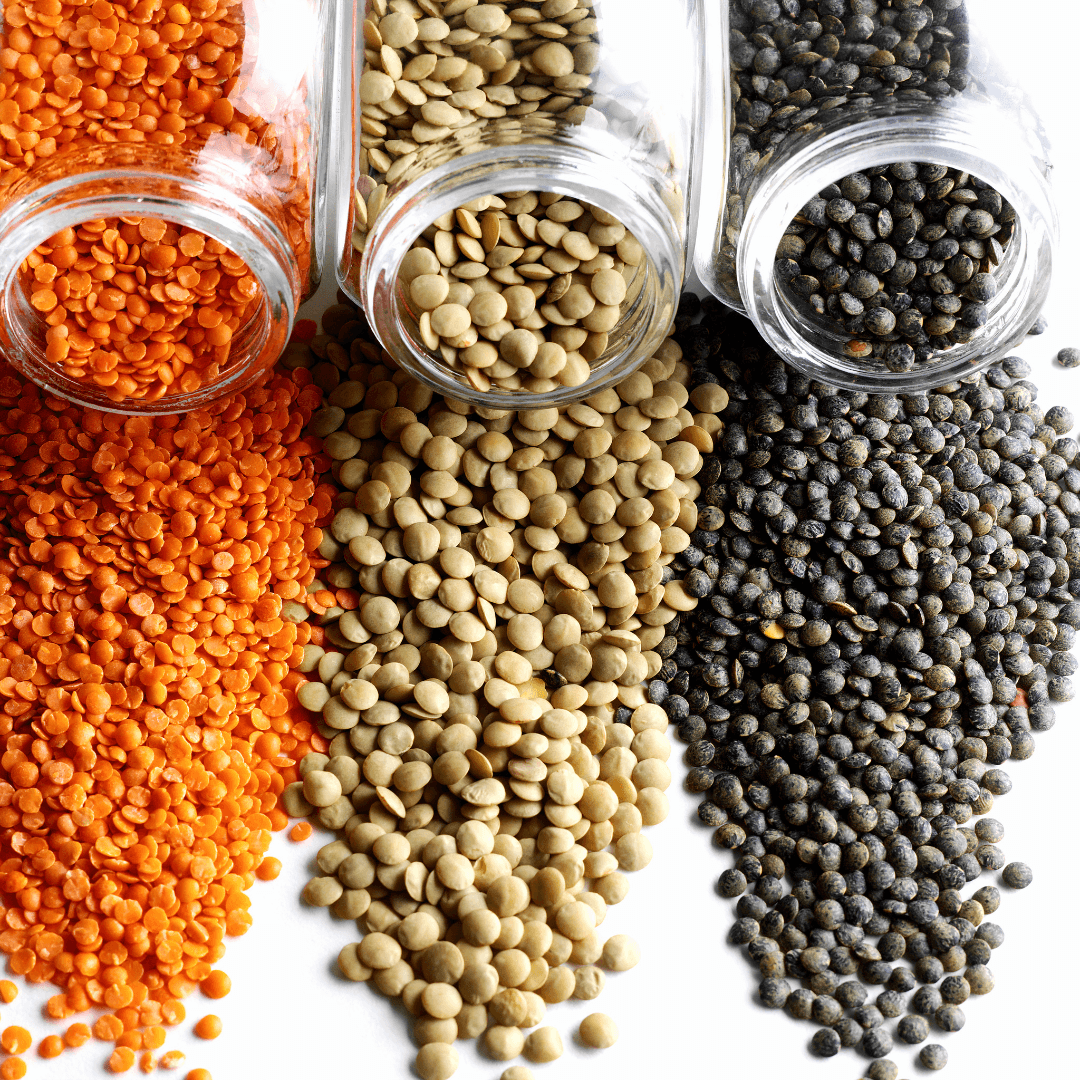
1. Lentils
The best source of zinc is lentils. They're also low in fat and calories, and they're packed with important nutrients like proteins and fiber.
Lentils have about 4.7 milligrams of zinc per cup. Curries are an excellent method to include them in regular meals.
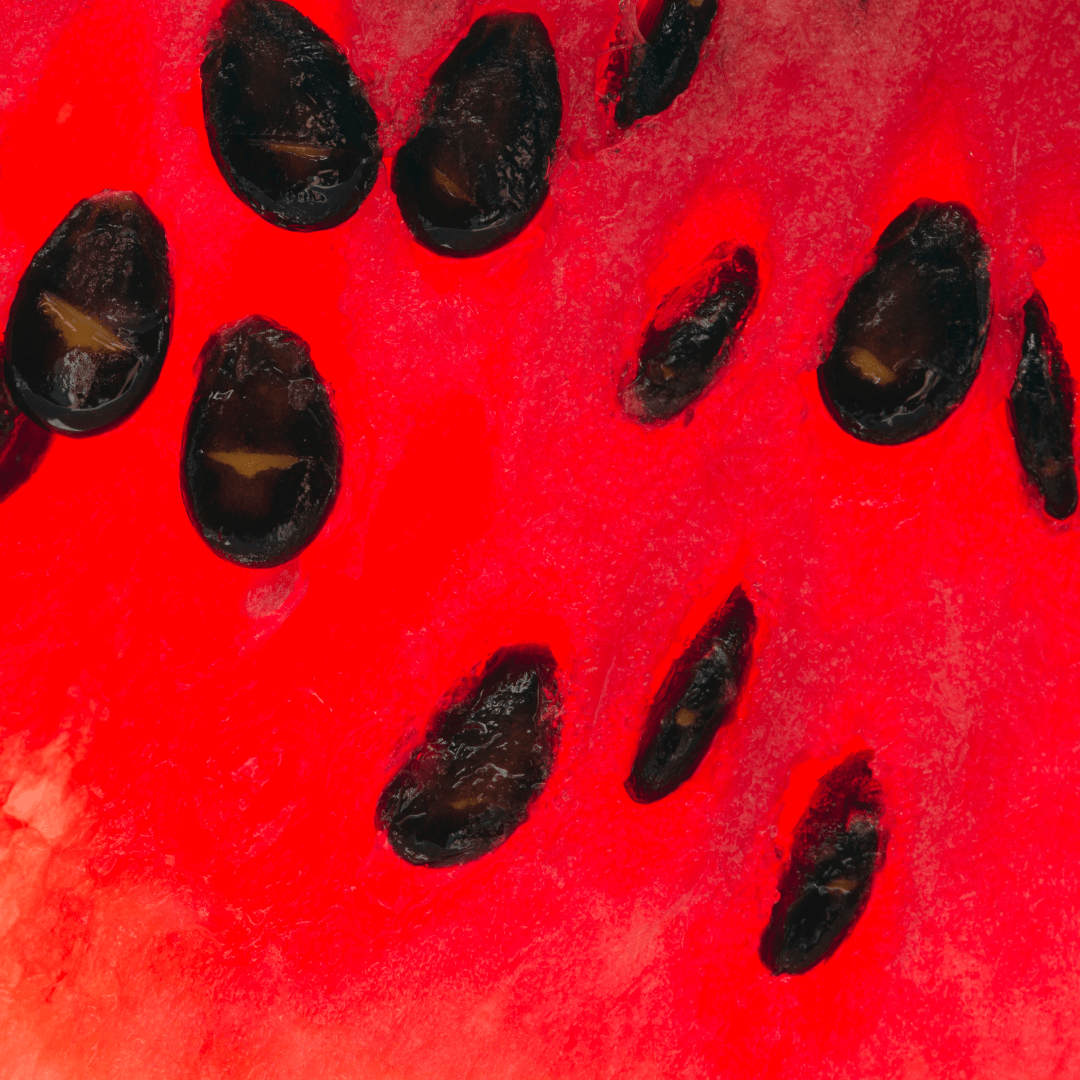
2. Watermelon Seeds
Don't throw the seeds away while drinking fresh watermelon juice. Watermelon seeds, believe it or not, are quite nutritious, containing zinc and other minerals.
A handful of watermelon seeds contains 4 milligrams of zinc. You can dry them and consume them as a snack regularly. These seeds boost immunity and keep your kids' hearts in good shape.
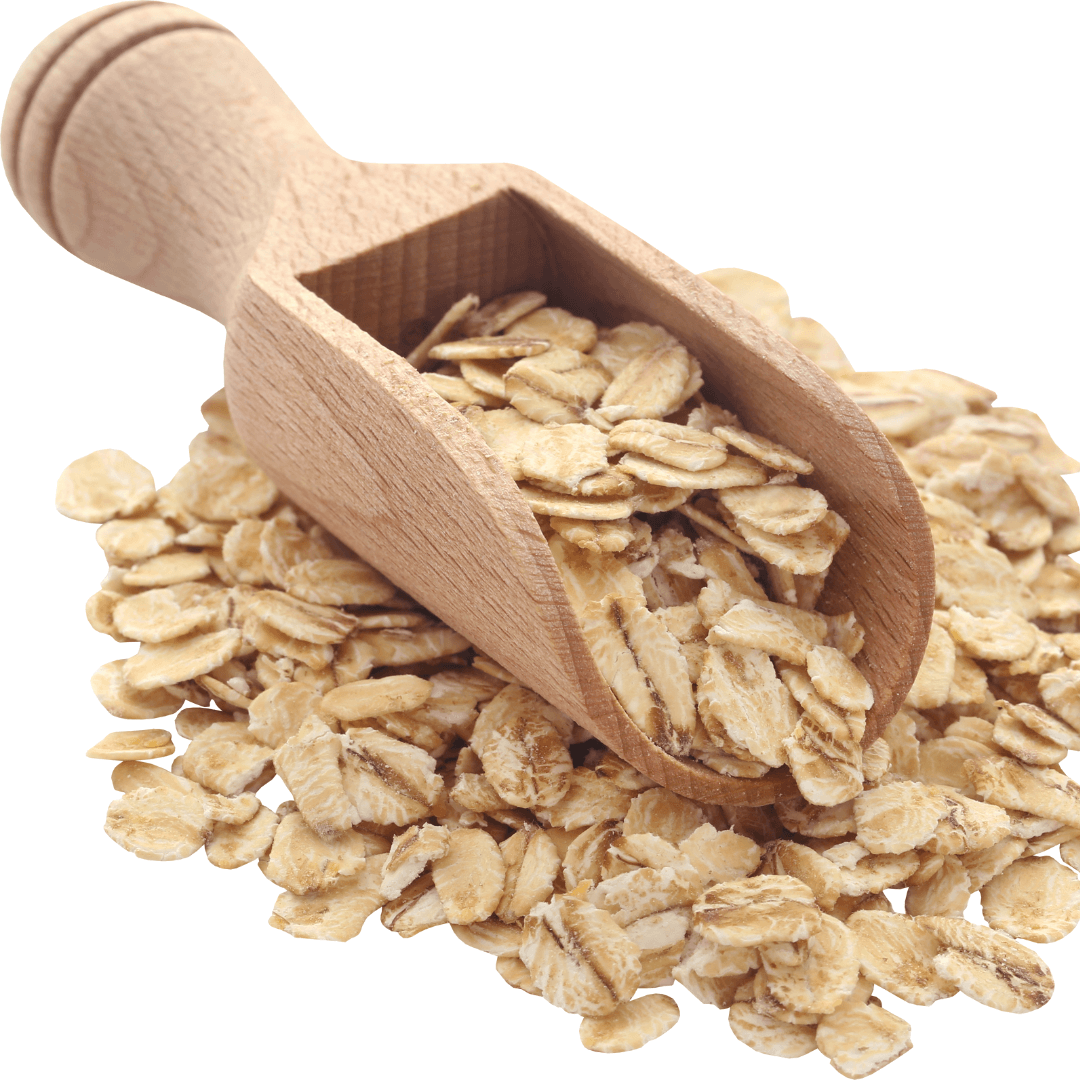
3. Oatmeal
It’s another great kid-friendly vegan zinc source. Because oats are a nutrient-dense food, they are the traditional breakfast.
Zinc, fibre, folate, vitamin B6, and beta-glucan, among other nutrients, are abundant in oatmeal. 1.3 milligrams of zinc is found in half a cup of oats. Oats can help to maintain kids' healthy hearts by lowering cholesterol levels.
4. Hemp Seeds
Hemp seeds are high in zinc and unsaturated fats. 3 milligrams of zinc is found in three tablespoons of hemp seed.
Hemp seeds are also high in arginine, an amino acid that helps lower heart disease risk. Sprinkle them on top of yogurt or salads.
5. Beans
Kidney and black beans are another good source of zinc. In addition, these beans are high in soluble and insoluble fibres, proteins, iron, phosphorus, and calcium, all of which are beneficial to general health.
A half-cup of cooked kidney beans has 0.9 mg of zinc, while a cup of cooked black beans contains 2 mg.
6. Cashews
Cashews are one of the tasty ways to receive natural zinc from plants. Whether you eat raw or roasted, you'll receive roughly 1.5 mg of zinc from them.
Vitamin A, vitamin K, copper, folate, and healthy unsaturated fat are all abundant in them. Cashews can lower kids' risk of heart disease and help them maintain a healthy cholesterol level.
7. Pumpkin Seeds
Pumpkin seeds are extremely adaptable and simple to include in various dishes. Pumpkin seeds provide 2.2 mg of zinc and 8.5 mg of plant-based proteins in a handful. According to research, consuming a diet high in pumpkin seeds may lower the risk of cancer.
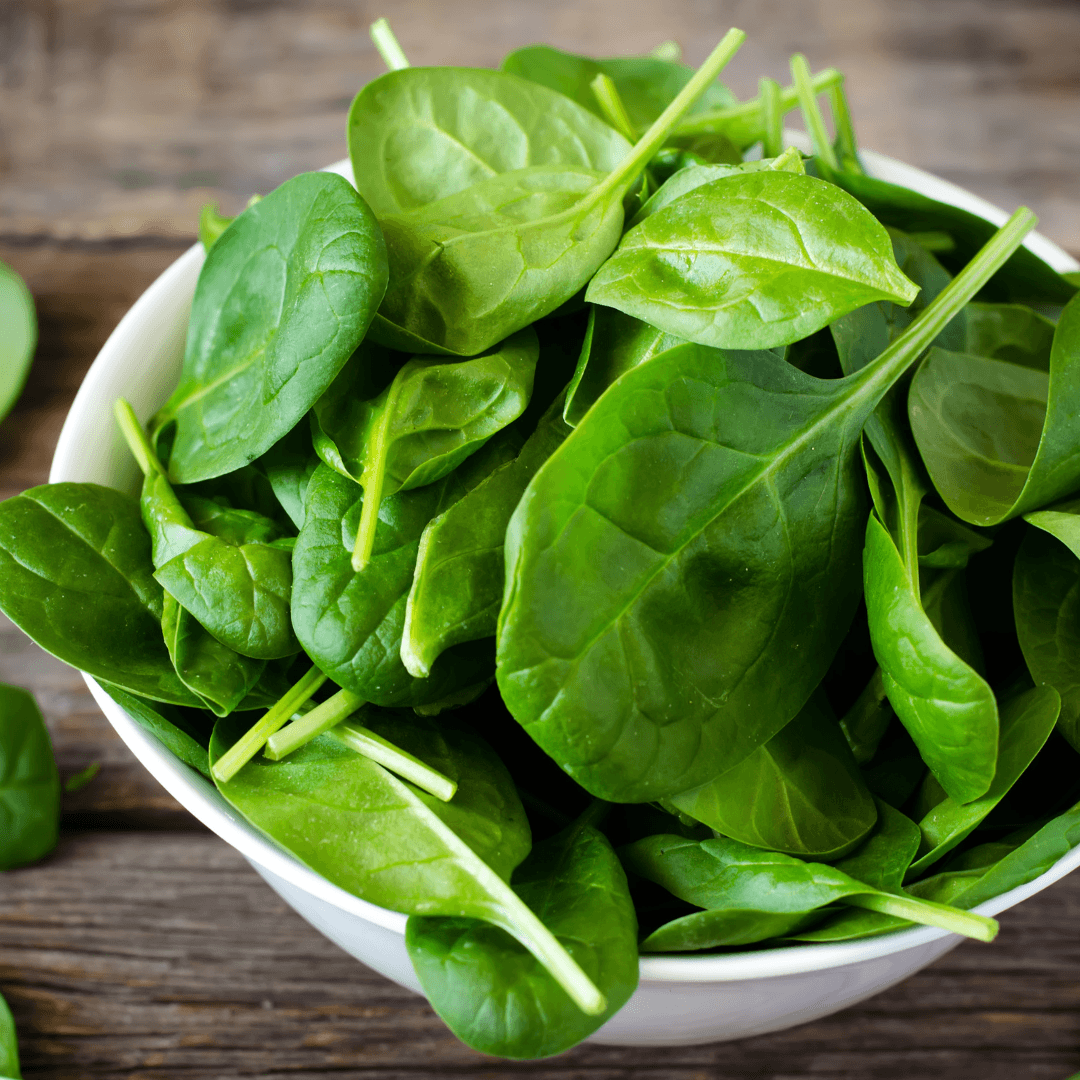
8. Spinach
This list would be completed without this green leafy vegetable, which is frequently regarded as a vegetarian's best source of vitamins and minerals.
It contains up to 7 milligrams of zinc per 200 calories, making it one of the healthiest foods on the list.
Dark Chocolate
Zinc is abundant in dark chocolate. Zinc is included in 3.3 milligrams per 100 grams of dark chocolate. Dark chocolate, on the other hand, is high in calories and sugar, so don't rely solely on it.
Tofu
Tofu is a popular vegetarian and vegan meal that contains a significant quantity of zinc per serving. Up to 2 milligrams of zinc can be found in 100 grams of firm, freshly prepared tofu. Furthermore, tofu is a versatile source of zinc because it can be utilized in various recipes.
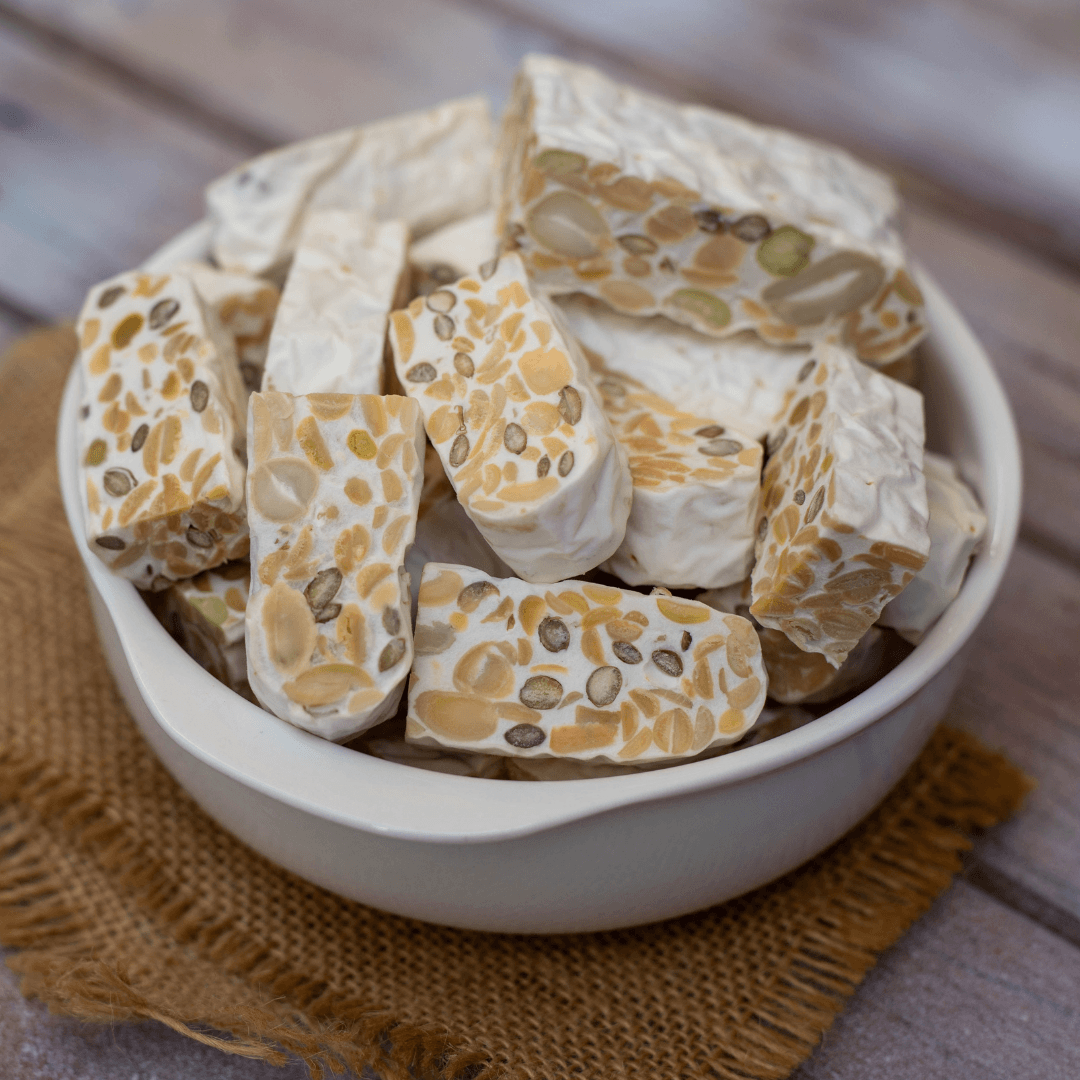
Tempeh
It's similar to tofu but not identical. Half-cooked soybeans are fermented in a rhizopus mould to make it. 175 grams of tempeh has roughly 1.14 milligrams of zinc, making it a reasonably adequate vegetarian supply of zinc.
Brown Rice
For vegetarians, any form of unprocessed rice, whether brown, red, or black, is a good source of zinc. This form of rice is also known as wild rice, and every 100 grams contains 1 mg of zinc.
Mushrooms
Button mushrooms and shiitake mushrooms are abundant in zinc. There is roughly 8 mg of zinc in a 100-calorie serving of white button mushrooms.
There is 5 mg of zinc in a 200-calorie portion of shiitake mushroom. These mushrooms are a good vegetarian source of zinc and have an appealing umami flavour.
Is It Safe To Give Your Child Too Much Zinc?
Small levels of zinc from the diet are not harmful to your child. However, if your youngster is taking zinc supplements, be cautious.
Supplements containing too much zinc can induce diarrhea, vomiting, abdominal pains, and headaches. The usage of zinc supplements over an extended period of time may cause toxicity.
Although your child's zinc requirements are small, zinc deficiency can cause various developmental problems.
Although zinc supplements are available on the market, acquiring your child's zinc from food sources is always preferable.
Improving Zinc Absorption
According to research, phytates have been reported to limit the absorption of several micronutrients, including zinc.
Phytates are often present in plant foods such as seeds, grains, and legumes, so your family may consume them on a daily basis – but don't be worried!
While phytates are frequently portrayed as “anti-nutrients,” a meta-analysis published in 2013 indicated that vegans have a slightly lower zinc status than those who consume animal products.
Protein can also help with zinc absorption; thus, eating these two nutrients simultaneously can be advantageous.
Plant-based foods, such as legumes and nuts, are high in both protein and zinc. Zinc bioavailability and absorption appear to be enhanced by leavened bread (which is most bread) and soy foods like tofu and tempeh.
Zinc Deficiency Symptoms
Although severe zinc insufficiency is uncommon, it can develop in persons with unusual genetic defects, breastfeeding infants whose mothers are deficient in zinc, people with alcohol addictions, and those who use certain immune-suppressing drugs.
Reduced growth and development, delayed sexual maturity, skin rashes, persistent diarrhea, impaired wound healing, and behavioural difficulties are all symptoms of severe zinc deficiency.
Milder forms of zinc insufficiency are more common, particularly among children in underdeveloped nations, where diets are often deficient in essential elements.
Due to insufficient dietary consumption, zinc deficiency is estimated to affect roughly 2 billion people worldwide.
Zinc deficiency weakens the immune system, increasing the risk of infection, and is considered to be responsible for approximately 450,000 deaths in children under the age of five each year.
- Children's growth rate is slowed.
- Pregnancy outcomes that are less than ideal
- Susceptibility to sickness and infections is increased.
- Wound healing is poor.
- Taste perception problems
The Following People Are At Risk Of Zinc Deficiency:
- People suffering from gastrointestinal disorders such as Crohn's disease
- Women who are pregnant or breastfeeding
- Infants that have been exclusively breastfed for a longer period of time
- Sickle cell anemia patients
- Undernourished people, such as those suffering from anorexia or bulimia.
- Chronic kidney disease patients
- Those who overuse alcohol are called alcoholics.
Is It Necessary For Kids To Take Zinc Supplements?
The majority of people do not require zinc supplements. A zinc supplement, on the other hand, may be used to address zinc insufficiency. Zinc lozenges may help shorten the duration and intensity of a typical cold.
Before taking a supplement, see your doctor or pharmacist, as too much zinc can cause diarrhea and interfere with other nutrients you require, such as copper and iron.
COVID-19 And ZINC
According to some experts, maintaining proper zinc levels may protect against COVID-19.
Zinc boosts the immune system and keeps mucous membranes healthy, according to a 2020 assessment. Zinc deficiency appears to increase the risk of various illnesses, including pneumonia.
While zinc may improve a person's overall health and disease resistance, there is no proof that it can prevent or treat COVID-19.
Furthermore, some zinc products can cause an irreversible loss of scent.
Kale Tofu Balls With Noodles Recipe
Ingredients
- Extra-firm tofu: 2 14 oz packages
- Carrot: 1
- Nutritional yeast: 2 tablespoons
- Red onion: ½
- Kale: 5½ oz
- Garlic: 3 cloves
- Parsley: 3 tablespoons
- Red pepper flakes: 1 teaspoon
- Panko flakes: 3 tablespoons
- Olive oil: 8 tablespoons
- Pasta of choice
Method
- If you haven't already, push the tofu.
- Carrots should be washed, skinned, and minced. The onions and garlic should be minced, and the baby kale should be roughly chopped.
- In a medium-high-heat pan, heat 2 tablespoons of olive oil. Sauté for a few minutes until the onions, garlic, and carrots are cooked and transparent. Salt & pepper to taste. Turn off the heat and rapidly stir in the baby kale, which will wilt due to the residual heat. Allow cooling before serving.
- Crumble the tofu in a mixing dish, aiming for pea-sized bits. Combine the panko flakes, nutritional yeast, red pepper flakes (if used), and sautéed baby kale in a large mixing bowl. Mix everything with your hands. Season again with salt and pepper.
- You should be able to form/mould balls depending on how much water was squeezed out of the tofu. To absorb excess moisture, you may need to add more binding, such as water, nutritional yeast or panko flakes. Form balls.
- Meanwhile, prepare the pasta according to package guidelines.
- While the pasta is cooking, put the remaining olive oil on medium-low in the same pan you used to sauté the vegetables and fry the balls. It's not your goal to make it extremely heated. Warm the final minced clove of garlic in the pan. When the pasta is done to your preference, coat it with the warmed garlic oil and parsley.
- To serve, divide pasta among dishes and top with kale tofu balls.
Conclusion
If you're wondering where to get zinc for plant-based babies, I hope this kid-friendly vegan zinc source and all the information are helpful.
Zinc can be found in a variety of vegan foods. The best approach to ensure you're meeting your plant-based baby's zinc requirements is to provide a wide variety of whole-plant foods and a zinc-containing supplement if necessary.
I trust you enjoyed this article about the Best Kid-Friendly Vegan Zinc Sources. Please stay tuned for more blog posts to come shortly. Take care!
JeannetteZ
>>>Want To Become Vegan And Learn How To Create Delicious, Cruelty-Free, Healthy AND 100% Vegan Meals? Try These Amazing Vegan Cooking Courses With This Free 7-DAY MEMBERSHIP<<<
Your Opinion Is Important To Me
Do you have any questions or ideas? I would love to hear from you. Please leave me your questions, experiences, and remarks about this article on the Best Kid-Friendly Vegan Zinc Sources in the comments section below. You can also reach me by email at Jeannette@LivingTheVeganLifestyle.org.
Disclosure
This post may contain affiliate links. I earn from qualifying purchases as an Amazon Associate and other affiliate programs. Please read my full disclosure.
Here are links to some of my favourite articles:
Best Vegan Restaurants In Lausanne, Switzerland
10 Best Vegan Pasta Recipes For Your Kids
Best 15 Vegan Iodine Sources For Your Kids
14 Best Vegan Lifestyle Tips For Beginners
37 Best Vegan Restaurants In Baden, Austria

